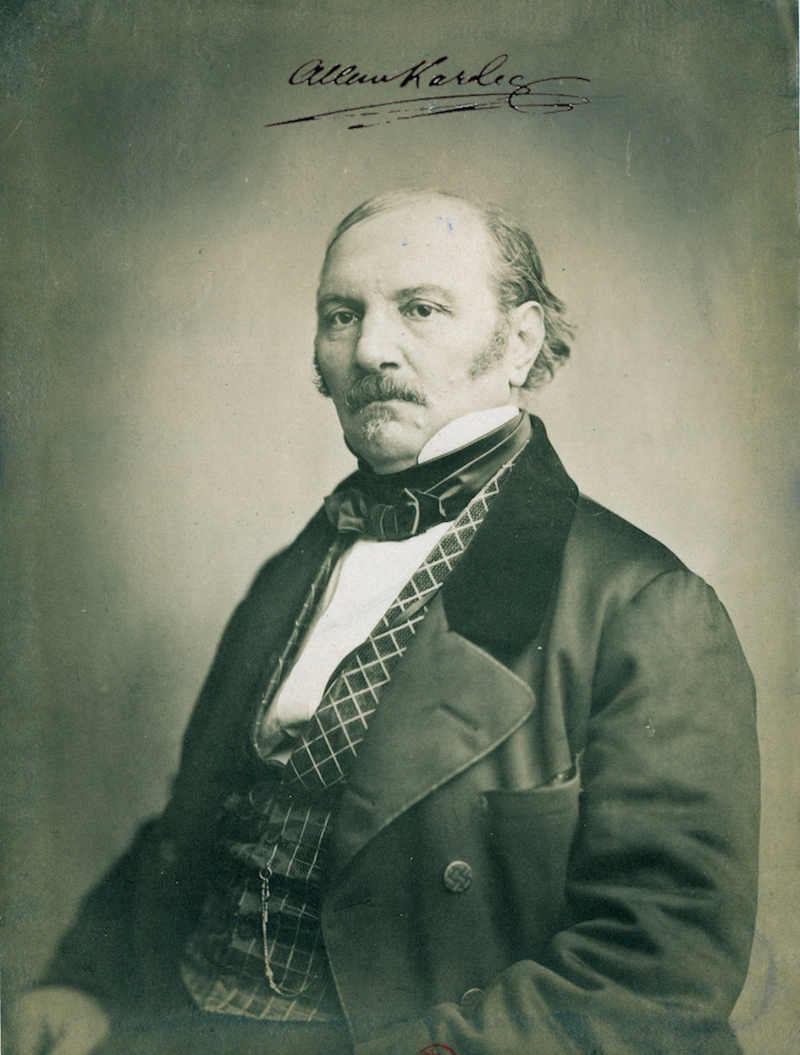Allan Kardec is the founder of Spiritism
Hippolyte Léon Denizard Rivail is a French professor. In the 1850s, he founded Spiritism in France under the pen name Allan Kardec. He was born on October 3, 1804, in Lyon, France, into a traditional family with a long history in the legal profession and the court system. He did not follow those professions. He had always been interested in science and philosophy since he was a child.
Allan Kardec was educated at the renowned Pestalozzi School in Yverdun (Switzerland), where he became one of that celebrated teacher's most eminent pupils and one of the most zealous propagandists of the Educational system, which had a significant influence on the reform of the Educational system in France and Germany.
Despite being born under the influence of the Catholic faith, he was schooled in a Protestant country. The acts of intolerance he experienced under these circumstances inspired him at a young age to envision a religious reformation, for which he worked discreetly for many years with the ultimate goal of establishing faith unification. He lacked, however, an essential component for resolving that massive dilemma. Spiritism emerged at this time to imprint in his mind the specific orientation for future endeavors.
Around the year 1855, the spotlight was placed on the subject of the manifestations of the Spirits, and Allan Kardec became dedicated to persevering on the observations of that occurrence, and cogitating primarily on its philosophical implications.
Allan Kardec could tell right away that these phenomena were the beginning of new natural laws: those that control the interactions between the visible and invisible worlds. He identified, in the operation of the invisible world, one of Nature's powers, the knowledge of which would shed light on vast issues hitherto thought insoluble, and he comprehended its theological implications.
Allan Kardec's main publications on the subject are: The Spirit's Book, which deals with the philosophical side of the idea and was initially published on April 18th, 1857; The Mediums' Book, concerning the experimental and scientific aspects (January 1861); The Gospel According to Spiritism, Concerning Moral and Ethics (April 1864); Heaven and Hell, or The Justice of God According to Spiritism (August 1865); Genesis, the Miracles and Predictions According to Spiritism (January 1868); Revue Spirite, a monthly newspaper of psychological studies that had begun on January 1st, 1858.
In a nutshell, Allan Kardec's publications reflect the following: The objective of life is spiritual growth, i.e. becoming more compassionate and wise. Humans keep returning (reincarnating) through numerous incarnations in order to grow closer to the goal.
On April 1, 1858, he established the first regularly organized Spiritist Society, known as the "Parisian Society of Spiritist Studies" with the explicit goal of studying anything that could contribute to the advancement of this new discipline. Allan Kardec successfully defended himself for writing something under the influence of planned or systematic thoughts.
As a person with a cool, quiet demeanor, Allan Kardec studied the facts and deduced the laws that govern them from his observations. He was the first to articulate the theory underlying such data and to organize them into an orderly and regular doctrinal body.
Allan Kardec established that the facts, which had previously been mistakenly regarded as supernatural, were actually subject to universal laws. He classed them as natural events, removing the last refuge of amazement and one of the elements of superstition.
Within a few years, their concepts gained a large number of supporters in all social circles around the world. That exceptional popularity was undoubtedly owing to the sympathy that such concepts aroused; however, it was also primarily due to the clarity with which they were presented, which is one of Allan Kardec's masterpieces.







